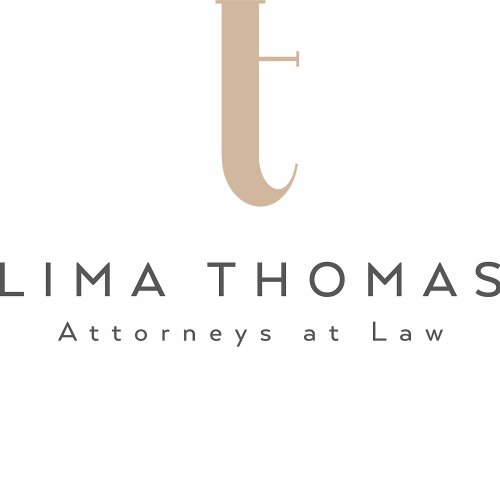Best Government Contract Lawyers in Lisbon
Share your needs with us, get contacted by law firms.
Free. Takes 2 min.
List of the best lawyers in Lisbon, Portugal
About Government Contract Law in Lisbon, Portugal
Government contract law in Lisbon, Portugal, encompasses the regulations, legislation, and guidelines governing the procurement of goods, services, and projects by various governmental bodies and agencies. In Lisbon, as in the rest of Portugal, government contracts are subject to both European Union regulations and national laws, aimed at ensuring transparency, competition, and fairness in the procurement process. The Portuguese Public Contracts Code (Código dos Contratos Públicos, CCP) is the primary statute that regulates government contracts, outlining the procedures for public procurement and the rights and obligations of both parties involved in a government contract.
Why You May Need a Lawyer
There are several situations in the government contract process where legal assistance could be beneficial. Understanding the complexities of the CCP, preparing tender documents, ensuring compliance with all legal requirements during the bidding process, and navigating potential disputes or appeals are situations where a lawyer's expertise becomes indispensable. Additionally, changes in regulations, handling contract modifications, and addressing breaches of contract are scenarios where legal advice could safeguard your interests.
Local Laws Overview
The key aspects of local laws in Lisbon that are particularly relevant to government contracts revolve around the CCP. The CCP mandates procedures for public tenders, direct awards, and competitive dialogue, among others, ensuring that public procurement processes are conducted in an open, transparent, and non-discriminatory manner. Furthermore, EU directives integrated into Portuguese law play a vital role, especially in cross-border procurement activities, setting standards for thresholds, advertisements, and the rights to challenge procurement decisions. It's important to note that specific sectors such as defense, security, and certain utilities may be subject to additional or differing regulations.
Frequently Asked Questions
1. How do I find government contracts to bid on in Lisbon?
Government contract opportunities in Lisbon can be found on various public procurement portals, such as BASE (Public Contracts Online), which lists public procurement procedures and contract awards.
2. What qualifications are needed to bid for a government contract in Lisbon?
Bidders must typically demonstrate technical capability, financial stability, and compliance with legal and regulatory requirements. Specific qualifications can vary depending on the contract.
3. Is it necessary to have a local presence in Lisbon to bid for a government contract?
While not always mandatory, having a local presence or local legal representation can be advantageous, especially for navigating legal and procedural requirements efficiently.
4. How are disputes in government contracts resolved?
Disputes can be resolved through negotiation, mediation, or litigation, depending on the circumstances. The CCP provides mechanisms for administrative appeal.
5. Can foreign entities bid for government contracts in Lisbon?
Yes, foreign entities are eligible to bid for government contracts, subject to compliance with Portuguese regulations and EU directives on public procurement.
6. What are the common reasons for disqualification from the bidding process?
Common reasons include non-compliance with technical specifications, failure to submit complete documentation, and failure to meet financial or technical capacity requirements.
7. Is it possible to appeal a procurement decision?
Yes, the CCP provides mechanisms for challenging procurement decisions, including decisions on award, disqualification, and procedural errors.
8. Are there any restrictions on subcontracting?
While subcontracting is generally permitted, there are restrictions and conditions, such as the need to disclose subcontractors and ensure they meet certain criteria.
9. What is the role of the Competition Authority in government contracts?
The Portuguese Competition Authority oversees the enforcement of competition laws in public procurement, ensuring that procurement practices do not hinder competition.
10. How long does the bidding process take?
The duration can vary significantly depending on the complexity of the contract, the procurement procedure used, and responses to queries or appeals. Preparation and procedural steps can extend timelines.
Additional Resources
Prospective bidders and parties interested in government contracts in Lisbon may find the following resources helpful: BASE (Public Contracts Online) for current tender opportunities, the Portuguese Public Procurement Portal for regulations and guidance, and the Portuguese Competition Authority for information on competition laws in procurement. Consulting with a local lawyer experienced in government contracts is also advisable for tailored legal advice.
Next Steps
If you require legal assistance in government contracting in Lisbon, the next step is to consult with a lawyer specializing in this area. Look for law firms in Lisbon with a strong track record in public procurement and government contracts. Initial consultations often provide valuable insights into your position, potential strategies, and the legal landscape of government contracts in Lisbon. Remember, timely and informed legal advice is crucial in navigating the complexities of government contracts successfully.
Lawzana helps you find the best lawyers and law firms in Lisbon through a curated and pre-screened list of qualified legal professionals. Our platform offers rankings and detailed profiles of attorneys and law firms, allowing you to compare based on practice areas, including Government Contract, experience, and client feedback.
Each profile includes a description of the firm's areas of practice, client reviews, team members and partners, year of establishment, spoken languages, office locations, contact information, social media presence, and any published articles or resources. Most firms on our platform speak English and are experienced in both local and international legal matters.
Get a quote from top-rated law firms in Lisbon, Portugal — quickly, securely, and without unnecessary hassle.
Disclaimer:
The information provided on this page is for general informational purposes only and does not constitute legal advice. While we strive to ensure the accuracy and relevance of the content, legal information may change over time, and interpretations of the law can vary. You should always consult with a qualified legal professional for advice specific to your situation.
We disclaim all liability for actions taken or not taken based on the content of this page. If you believe any information is incorrect or outdated, please contact us, and we will review and update it where appropriate.
















